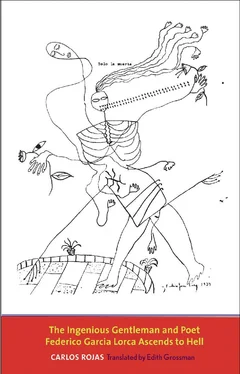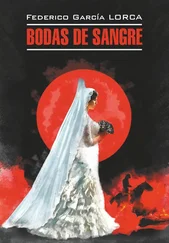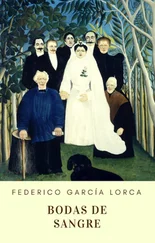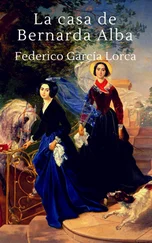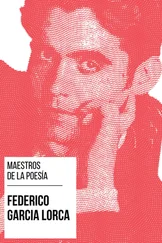He wanted two, and you drank down those Fundadors in a couple of swallows. Martínez Nadal looked at you almost furtively. Part of your panic and especially your uncertainty seemed to infect him. In his expressions you read increasingly clear grief or foreboding. Or perhaps you thought you read them, because you always made of your friends and the world not only a reflection but an extension of yourself and your changes of mood. But on that day and in that café near the Puerta de Hierro, you didn’t need to force your imagination to see a collective image of your uneasiness all around you. It was high summer, but people filled the streets of Madrid day and night. No one decided to leave before the war broke out. Assault Guard trucks came from University City and drove down Princesa. Some newsboys shouted headlines about the cessation of the last debate in Parliament. Rafael bought one and you trembled as you read it. The State of Emergency had been extended and the angry controversy over the assassination of Calvo Sotelo continued. Gil Robles said the Popular Front government was one of shame, mud, and blood, and very soon would also be one of hunger and poverty. Barcia replied in the name of the Council.
“Rafael, do you remember the original of the unpublished play of mine, the one I call The Public ? I lent it to you last week.”
“Why would I forget it? Do you think I’ve lost it?”
“Of course not! Good Lord, don’t get angry with me this afternoon!”
“I’m not angry; but I don’t want you to think badly of me even for an instant.”
“How would I think badly of you when I want to confess a certainty I didn’t even dare tell myself?”
“What the devil are you trying to say to me?”
“It’s about The Public , my play that you have in your house.”
“I’m sorry, but I haven’t read it yet.”
“It doesn’t matter. I haven’t looked at it either, not for years; but I’m convinced it transcends our time. I moved writing for the theater, mine included, naturally, ahead by several generations. Perhaps entire centuries, though it may be hard for you to believe. Once I read the piece to the Morlas and they were horrified. Imagine, the Morlas, who are so fond of me, and as courteous as benevolent vicuñas! Bebé almost cried with rage as she listened to me. Afterward she said it was all nothing but sheer nonsense and blasphemies. Carlillo scolded me in his fashion, which was more diplomatic, but the man was livid. ‘You can’t publish that, let alone stage it,’ he wailed between deep Chilean sighs. ‘You’d better burn the thing and forget it.’ Then I realized I had written my masterpiece. You know, the eternal misunderstood masterpiece that to other people’s eyes is always a labyrinth.”
“That’s what it must be, if you say so,” he agreed in an exhausted voice. “I’ll read The Public right away.”
“You don’t have to read it. The plays of mine that are staged are full of easy concessions. People are astonished and pleased by them because everything else is even worse. In other words, it boils down to pure rubbish. Still, I know how easy it is for me to write them. I feel a little like Zorrilla, scandalized by his ability to rhyme clichés. And a little like Polycrates, frightened by his good luck. The Public is different. I had to demand everything of myself, absolutely everything, and climb down to the center of my being on the ladder into my soul to achieve a play that’s so authentic.”
“All right, all right,” Martínez Nadal interrupted impatiently. “I told you I’d read it.”
“And I’m telling you again that you shouldn’t. Don’t be offended but today you won’t understand The Public either. Just as I didn’t really understand it myself, to tell you the truth.”
“Why did you lend it to me then?”
“To ask you for a favor that’s bigger and much less useless than your reading it.”
“Fine, go ahead.”
Rafael Martínez Nadal looked at you, intrigued. Up to that point your panic had made him feel irritated and impatient. Suddenly and in spite of himself, he listened to you intently, hanging on your words. Gradually it was growing dark, to the chirping of sparrows and the shouting of newsboys.
“If anything happens to me in this war that’s at our door, swear you’ll destroy the original of The Public right away.”
“I’m not swearing anything!”
“Give me your word, then.”
“I won’t give you that either. Why do you want to burn it if it’s your masterpiece?”
“Precisely for that reason, because only I could suspect the importance of what I’ve written. If I die, The Public has no reason to exist for other people.”
“All I promise is to return it unread when you get back from Granada.”
You yielded in silence, partly because of a sudden weariness and partly because The Public suddenly seemed like someone else’s work. As if contrary to everything you had just been saying, you were the only person on earth incapable of understanding it. Again you were overcome by the feeling of having lived that day before, in the identical, uncertain frame of mind. Not long afterward, in a taxi that took the two of you to Cook’s to buy your train ticket, you couldn’t stop talking about another play you had in mind. You called it The Destruction of Sodom , and even though you hadn’t written a single word of the work, in which the Bible impinged on surrealism, you described entire scenes in complete detail. Lot opened the final act with his invitation to the two angels of the Lord. The righteous man’s house would be on one side of the square in Sodom, and in a Pompeian gallery and portico (“Pompeii as seen by Giotto, Rafael”), Lot would offer his feast to the two beautiful men, Jehovah’s incognito archangels. The sides of the stage would be cut on a bias, a little walled garden would appear where the patriarch’s two virgin daughters would lament the indifference of the men in the city. Gradually the populace of queers would gather before the portico, hungering for perverse pleasures and shouting for the strangers. “Where are the men which came in to thee this night? Bring them out unto us, that we may know them.” And Lot: “I pray you, brethren, do not so wickedly. Behold now, I have two daughters which have not known man; let me, I pray you, bring them out unto you, and do ye to them as is good in your eyes: only unto these men do nothing; for therefore came they under the shadow of my roof.” Deaf to his pleas, the mob of deviants would assault the gallery. Lot and the angels would flee then to the house, barring the door as the crowd, increasingly inflamed, pounded on it with their fists. From the house would come the screams of the terrified father. “I shall give you my daughters! I shall give you my daughters so that you may know them and conceive in them! Use them, all of you, and heal your sickness before the One Whose Name Must Not Be Spoken destroys this city as punishment for your sins!” The chorus of roars would be in counterpoint to the lament of the virgins, deluded by lust, in a contrast of tones and timbres dictated by the same desire. (“As in the revivals of black evangelists I saw in a Harlem church. You can’t imagine the upsurge, the storm of songs whirling in the air and descending like a rain of whips and lightning flashes on the backs of the congregation.”) Unexpectedly the doors would open wide and through the opening the angels would come out, radiant in their beauty. But their gaze would blind like that of the Hydra, because the Lord transformed it into the thunderbolt of His wrath and His punishment in the city of queers. Their eyes burned by the stare of the prodigious creatures, the degenerates would run away shrieking and roll on the ground in the square (“ … something like Chirico’s squares, in his aseptic metaphysical paintings”), howling in terror and pain. Lot would take his daughters by the hand and flee to the mountains along the path through the desert. Behind him it would rain fire and brimstone, and Adonai, He Whose Name Must Not Be Spoken, would burn the pederasts alive after blinding them. You added as a kind of final couplet, for this was the singular lesson taught by the fate of Sodom, that the invention of incest ironically followed the city’s condemnation and punishment. Alone with Lot and agreed on between themselves, the virgins would resolve to end their virginity with the help of their own father, for want of another man. They would make Lot drunk twice in a row and each daughter would lie with the patriarch who had sired her on each of those nights. Lot would sow his seed in both and from the elder’s lineage would come the Moabites. The younger would give birth to Benammi, father of the house of the Ammonites (“ Rideau ”).
Читать дальше
